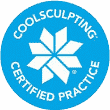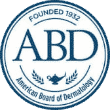In continuation of our most recent topic, here is the second installment in our series on Psoriasis Basics
Cause of Psoriasis
Normal skin cells (keratinocytes) start growing in the deepest layers of the skin (epidermis) and rise to the surface as they mature. The mature cells at the surface eventually fall off from everyday wear and tear and are replaced by newer cells below. This process usually takes about a month.
In skin affected by psoriasis, this process is accelerated and takes just a week or more. The skin cells multiply quickly and accumulate on the surface in silvery scales. This rapid growth is the result of a problem with the immune system.
Under normal circumstances, the immune system’s T cells patrol the body looking for bacteria or other foreign substances. The T cells’ attack on such invaders is called the immune response. People with psoriasis have overactive T cells that trigger an increased production of skin cells. Many of the treatments for psoriasis are aimed at controlling the immune response.
Treatment Options for Psoriasis
Although there is currently no cure for psoriasis, there are multiple psoriasis treatments available that can usually lead to a clearing of symptoms. The goal of treatment is to stop the skin cell overgrowth that leads to plaque formation and inflammation.
Treatment options include the following category of medications:
- Topical medications applied to the skin, including corticosteroids, topical retinoids and vitamin D derivatives
- Oral medications, such as acitretin (Soriatane(r)), cyclosporine and methotrexate.
- Phototherapy and UV lasers
- A new class of medications called “biologics”, including Humira(r), Enbrel(r), Remicade(r), and Stelara(r).
Your doctor will recommend one or more of these treatments depending on the following factors:
- Type of psoriasis
- Location (scalp, trunk, hands feet, etc.)
- Severity of psoriasis
- Results of previous treatments
- Ease or convenience of a treatment
- Possible side effects
-
- Since some treatments work better for some patients than others, be prepared to try more than one treatment. Next week, we will cover some of the more common psoriasis triggers.
By: Jonathan S. Weiss, M.D.













